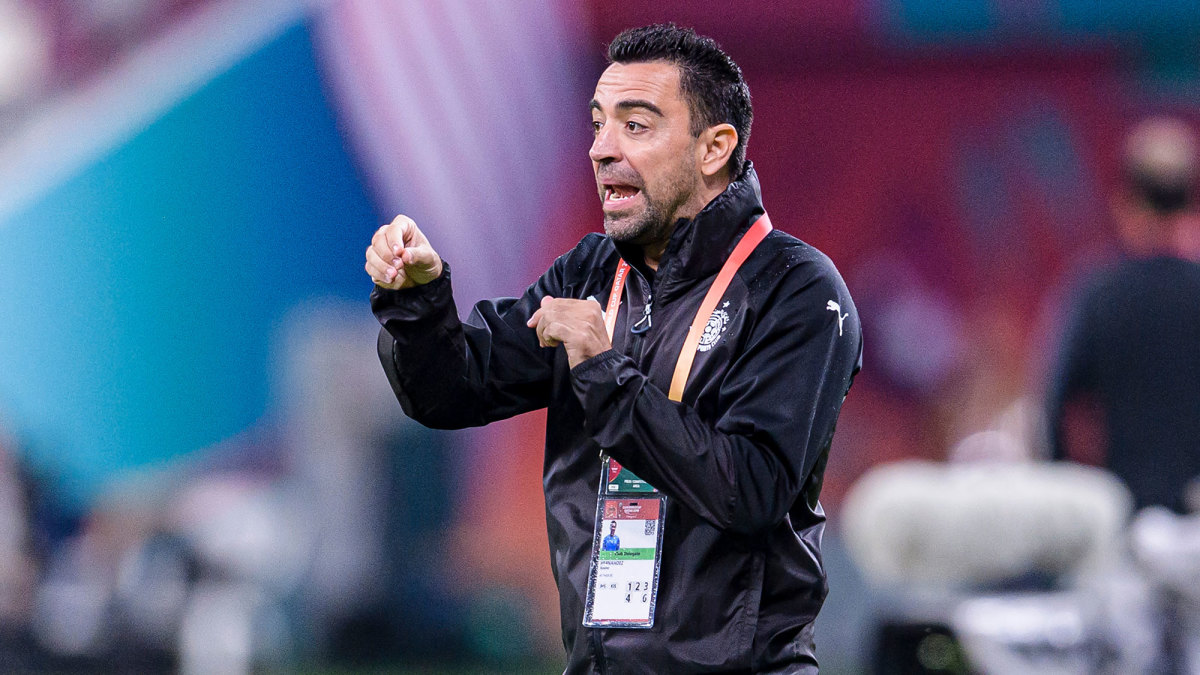Ronald Koeman Wasn't Barcelona's Savior, but Club's Woes Don't Leave With Him

In the end, the manager always gets the blame. Barcelona sacked Ronald Koeman on Wednesday evening after a 1–0 defeat away to Rayo Vallecano that left the club ninth in La Liga's table, nine points behind league-leading Real Sociedad. His 14 months in charge have been fraught, characterized by poor performances and results, but how much Koeman can be blamed for that is debatable.
This club's years-long crisis was precipitated by its reaction to losing Neymar to Paris Saint-Germain in 2017. Rather than taking the €222 million windfall and investing it sensibly, Barça blew it, just as it had after losing Luis Figo in 2000, wasting a fortune on Ousmane Dembélé and Philippe Coutinho. It was as though having lost one expensive star, it had to go out and sign other expensive players with little thought given to whether they were actually that good or would fit the system. This was celebrity for the sake of celebrity—the failure of the signings highlighted when Coutinho scored twice against Barcelona while on loan at Bayern Munich in the 2020 Champions League quarterfinals. Barcelona kept spending beyond what was sensible, and was then exposed by the pandemic, culminating in the financial crisis that ultimately forced the departure of Lionel Messi.
Koeman came into that situation with his eyes open, leaving the Netherlands national team, where he was doing extremely well, to take the job that he had always dreamed of holding. He is blunt and thick-skinned, with little sense of diplomacy; he is not somebody for whom it is always easy to have sympathy. But the job he was asked to take on was all but impossible: Managing a club with enormous expectations operating under severe financial restrictions.

Did he do a good job? Who can tell? What would a good job even look like in these circumstances? The first team comprises inexperienced promise, aging veterans and, with all due respect to Martin Braithwaite and Luuk de Jong, mid-ranking talent that three years ago would have been nowhere near a Barcelona first team.
At the same time, Koeman has been undermined by Joan Laporta, who was elected club president in March and made it clear Koeman was not his first choice as manager. All that had kept Koeman in charge until Wednesday was the difficulty in finding a replacement, both given the poverty of the squad and the restrictions on the budget. But after defeat to Real Madrid in the Clásico over the weekend, after which fans surrounded Koeman’s car and abused the manager, followed by the defeat at Rayo Vallecano, a third successive away league defeat, Laporta has apparently decided that Koeman’s presence has itself become destructive. Even in the recent wins over Valencia and Dynamo Kiev, there was a downside, as the Camp Nou was at only a little over half capacity.
But whoever replaces Koeman—and in the interim, it's Sergi Barjuán, the current Barça B coach—will face the same difficulties. That problem of recruitment has not gone away. It’s estimated that sacking Koeman will cost around €12 million, and that is money Barcelona can ill afford to have wasted. It’s not as simple as Barcelona being able to pay the new manager the same it paid Koeman, which was €7.2 million a year; that deal was agreed before the present restrictions on spending were put in place. A salary of around €4 million a year is probably possible, and that is probably not enough to tempt the very biggest names.

Former Barcelona midfielder Xavi, currently managing Al Sadd in Qatar, has quickly emerged as the heavy favorite to take over, although he is under contract until 2023 after signing a new deal in May, and so an arrangement would have to be reached. Xavi led Al Sadd to the league and cup double last season, and it is currently on a 34-game unbeaten run. Although he has no experience managing in Europe, he is as ideologically pure as they come, having been raised in Barcelona's La Masia academy and having won eight league titles and four Champions League titles with Barcelona.
Marcelo Gallardo, who is leaving River Plate after seven hugely successful years in which he twice lifted the Copa Libertadores, might be a cheaper option, although he, too, has never managed in Europe. He's also said he won't be exiting before his contract ends at the end of December. Brendan Rodgers and Andrea Pirlo have also loosely been suggested, but both seem far less likely candidates.
But the truth is that whoever takes over faces an almost impossible job. Sergiño Dest, Eric Garcia, Gavi, Pedri and Ansu Fati are all 20 or under and all supremely talented. There is the nucleus of a great side there, but there is also a great danger in fielding half a team of youngsters and expecting too much of them. And regardless who is playing and regardless of the circumstances surrounding the club that are out of a manager's control, this is a job in which there is always pressure to deliver results. A run of 10 matches with just three wins, including humiliating Champions League defeats to Bayern Munich and Benfica and a home Clásico loss to Real Madrid, coupled with an overall sense of waywardness gave Barcelona the impetus to make its move.
Perhaps by the end Koeman had to go, but he does not take the club's biggest problems with him—nor will his successor enter unencumbered by them.
More Soccer Coverage:
